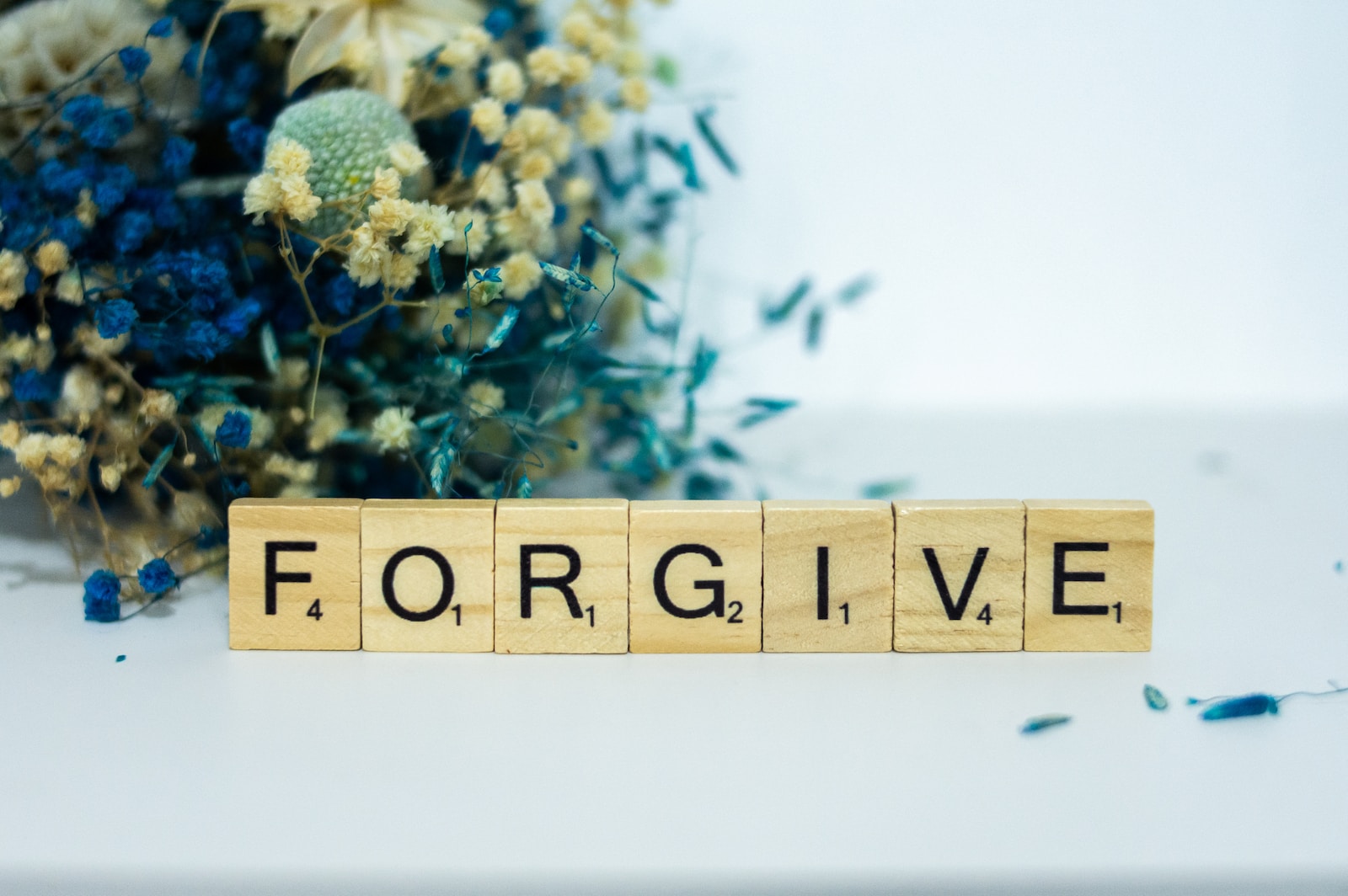
In 2002, the director of the Stanford University Forgiveness Project, Dr. Fred Luskin described forgiveness as a feeling of peace that emerges as you take your hurt less personally and take responsibility for how you feel. Both Luskin and Dr. John Gottman, founder of the Gottman Institute, describe a distress-maintaining scenario called a grievance story. They explain that when we have trouble forgiving someone, it is because we put on a selective filter and select only those elements of the experience that support our own perception of events. This creates a sense of righteous indignation as we recall the most negative aspects of the person and his or her most hurtful actions. We then view the most virtuous and innocent aspects of ourselves, filtering out any personal shortcomings. Maintaining this mindset supports our own grievance stories, where we are victims and therefore allowed to harbor and nurture resentments. Luskin urges us to change our grievance story to a forgiveness story, where we become the hero instead of the victim.
Forgiveness does not change the past, but it does change the present. It does not take away your pain. It does, however, mean that even though you are wounded you are choosing to hurt and suffer less. Hurting is a normal part of life and is a reality when you are in a relationship with someone else. There is no relationship that is pain free.
More importantly, just because you chose to forgive someone does not mean that you are necessarily going to stay in the relationship. You have choices. You can forgive and rejoin the relationship or you can forgive and never speak to that person again. The act of forgiveness is for you and no one else.
Turn On the Beauty, Forgiveness, and Gratitude Channels
When we stay stuck in our grievance story, we spend all of our time focused on grudges, anger, and wounds. We lose sight of the good aspects of our lives. Luskin describes the act of picturing yourself changing the trauma channel on a television. I have used this analogy with many patients who are caught up in their grievance story. I ask them to picture their television sets and all of the many channels that are available to watch. Instead of staying on the trauma channel, I ask them to envision themselves switching to the beauty channel or the gratitude channel. If they turn on the beauty channel, they could embrace nature shows or appreciate incredible music. They could also notice the taste of a delicious meal, the sight of a field filled with wildflowers, or the tantalizing aromas around them.
I then ask my patients to picture themselves switching the station to the gratitude channel. I ask them to imagine themselves walking into a supermarket filled with an abundance of delicious food. I tell them to picture themselves saying thank you for having so many options available. Then I take it a step further by asking them to imagine themselves walking into a hospital or a nursing home and saying thank you for the fact that they are healthy when so many people are not.
After they have a moment to contemplate their good fortune, I ask them to remember any kind act done to them by their parents or other family members. Additionally, I ask them to give a silent prayer of thanks for small acts of kindness, such as when they walk into a store and a salesclerk offers help. I also speak of the value of mentally thanking each of the drivers who are following the rules of the road. There are so many little things that we take for granted when we are not watching the gratitude channel.
Lastly, I ask my patients to turn on the forgiveness channel. When you are looking at the world through the lens of forgiveness, you notice people who have forgiven others. I urge my clients to ask people they know who have forgiven others to tell them their stories. I also ask them to remember a time in the past when they themselves have forgiven others. I remind them that they can do this again. I suggest that they read books about people who have forgiven others and to search for forgiveness stories in their own families. I suggest that they practice forgiving even the smallest offenses that are done against them, whether it is a waitress who brought them the wrong order or an acquaintance who messed up the pronunciation of their name. The act of forgiveness is like exercising a muscle. It gets stronger with each bit of practice.

